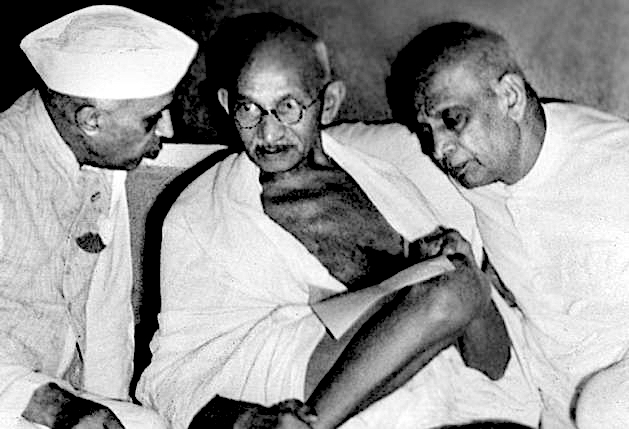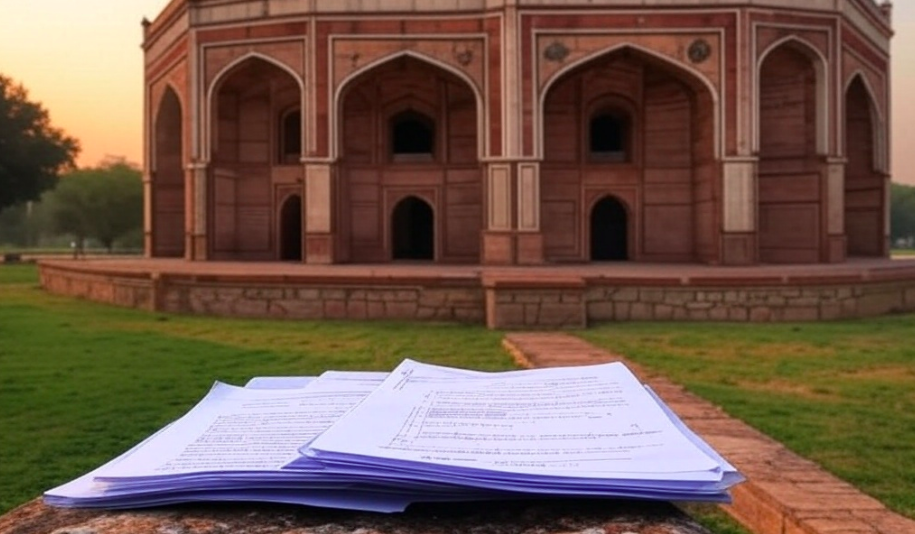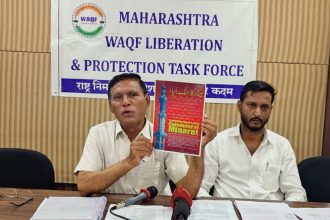A lot has been said in the past decade on the relationship of our leading founding fathers, the giants Jawahar Lal Nehru and Sardar Patel. The ruling dispensation believes that Nehru was a disaster and doesn’t fail to highlight his flaws. There is another side to this, which says that Patel would have made India much more prosperous than “incompetent” Jawaharlal Nehru if the former were to be the first prime minister of India. The media today is highlighting all sorts of views on Nehru and Patel, some extreme, some dormant, and some extremely delightful.
This debate is futile. Those who think that Nehru should not have been the first Prime Minister must listen to Sardar Patel, who, after Mahatma Gandhi’s assassination, stated, “Gandhi named Pandit Nehru as his heir and successor. Since Gandhiji’s death, we have realized that our leaders’ judgment was correct” (From Patel A Life by Rajmohan Gandhi, p 490).
Of course, Nehru made serious errors, but people who propagate this conveniently forget his political, diplomatic, economic, and democratic achievements. They also forget that Patel was party to every decision from the time Indian National Congress formed the interim government till his death on 15 December 1950.
Turning back a few pages, we remember that it was at this time when the two great men accepted Partition, rejected the two-nation theory, integrated princely states, formulated the Constitution of India, envisioned secularism, held joint leadership after the assassination of Mahatma Gandhi and saved India from an insurgency. To me, this duumvirate is similar to the popular pair ‘Salim-Javed’ who produced gems in the Hindi film industry like Zanjeer, Sholay, Deewar, Trishul, and Mr. India. Their success is portrayed as a team, not as an individual accomplishment. Javed Akhtar stated that both agreed on a common point but disagreed on its detailing, which resulted in the enhancement of their craft.
This analogy fits the bill when talking about the Nehru-Patel relationship as well. Their roles went through different phases, first as freedom fighters, battling for Independence, and then building the nation as prime minister and deputy prime minister.
They both shared a common vision of an Independent India from British rule. This vision is very well exhibited in the infamous Karachi Session of the Congress, presided by Sardar Patel. The major highlight of the session was the Fundamental Rights Resolution drafted by Nehru and moved by Mahatma Gandhi. That resolution is proof of the broad consensus of Nehru and Patel, who envisioned that all citizens are equal before the law, irrespective of religion, caste, creed or sex. The resolution also enlisted the idea of a secular state, which will protect the culture, language, and script of minorities and cherishing freedom of expression. Later, all these guiding principles were articulated in our Constitution by Dr. B R Ambedkar, who formulated India’s ‘Magna Carta,’ which was signed by both Patel and Nehru.
However, Nehru and Patel had their fair share of differences on economic policies, approach towards communal problems, the role of the prime minister of the State, handling complex matters like refugees resettlement, and Kashmir. These differences sometimes lead to heated exchanges, as Patel mentioned it in a letter to Mahatma Gandhi on 2 July 1946. “If I had talked with some heat in the Committee, that was due to a defect in my temperament. It happens at times with Jawaharlal. But there is nothing else behind it.” Many times they resolved differences through discussion and debates, and one was able to convince the other. Numerous Nehru-Patel letters are testimony to this. Sometimes they felt that they can’t work together and handed their resignations. Those differences were solved by mediation, by Mahatma Gandhi, when he was alive, and after his death Lord Mountbatten, and later Rajaji, who wore the umpire’s hat. But it’s also a historical reality that they never broke with each other. Gopal Krishna Gandhi had summed up beautifully this complex relationship. The former diplomat stated, “The mutual differences between Nehru and Patel are no secret. Congress did not believe in secrecy. Their mutual trust was no secret. Congress believed in trust.”
The letters between Nehru and Patel serve as remarkable tools to gain a comprehensive understanding of their relationship and visions of nascent Independent India. Sardar Patel remarked at an address to the Uttar Pradesh Kisan Conference, held on 28 April 1935, “In the absence of Jawaharlal Nehru, this conference is like a ship without its master. He is fully cognizant of the problems which nobody has done so far. It was for our good that he left his princely style of living, his mansion, and his family and has come face to face with economic ruin. He was unhappy in our unhappiness, he burns with anger when he finds us in economic penury, and is for our well being that he gave up a life of luxury and chose to live like a poor man. How can we take even one step forward without such a helper? Even though he is absent, his blessings are with us. We pray to God to give us the strength to follow in his footsteps and that he comes back to guide this ship to safer shores.” (Gandhi Patel Letters and Speeches, Differences within Consensus, by Neeraja Singh, published by National Book Trust, page number 25).
Three years later he praised Nehru for being an “Internationalist among the Nationalists. Pandit Nehru had always held the view that the Indian problem was a part of the world problem. Therefore, it was essential for him to go out and study the situation outside India. At such time, the only person who could effectively represent the Indian aspirations was Pandit Nehru. During the last two years, as president of the Indian National Congress, he had done untiring work. He had toured from the Khyber to Kanya Kumari and from Karachi to Calcutta and had the fullest knowledge of India’s strength today.” ( Nehru-Patel Agreement within Differences Select Documents and Correspondences 1933-1950 edited by Neerja Singh, p 26-27.)
On the other hand, Nehru was impressed by Patel’s leadership at Bardoli which made Patel the first Sardar of Bardoli, and later Sardar of India. Also reminding his readers in his Autobiography that Patel was a more loyal colleague of Mahatma Gandhi than him, on page number 287, he wrote, “Perhaps in the whole of India Gandhi has had no more loyal colleague than Vallabhbhai – a man strong and unbending in his work, and yet devoted to him personally and to his ideals and policy. I could not claim to have accepted these ideals in the same ways.”
On page number 180 of An Autobiography, “In Gujarat a conflict on a big scale developed between the peasantry and the Government because of the attempt of the latter to increase revenue__Gujrat become an area of peasant proprietors where Government deals directly with the peasants. This struggle was the Bardoli Satyagraha under the leadership of Sardar Vallabhbhai Patel. It was gallantly carried through to the admiration of the rest of India. The Bardoli peasantry met with a considerable measure of success, the real success of the campaign, however, lay in the effect it produced amongst the peasantry all over India. Bardoli became a sign and a symbol of hope and strength and victory to the Indian peasant.”
When Sardar turned 70, Nehru paid tribute to him in the following words. “For more than a quarter-century now we have been associated with each other and we have had to face all manner of crisis and difficulties. These years have been years of trail for all of us in India. Some have shrunk, or fade away, or just remain where they were. A few, a very few have grown in stature with the years and have left their mark on events, which formed the fabric of history. Among these latter chosen ones, stands Vallabhbhai Patel. Strong of will and purposes, a great organizer, wholly devoted to the cause of India’s freedom, he has inevitably roused powerful reactions. Some have disliked him because they could not fall in line with him. But far greater numbers of people have found in him the leader of their choice, and, working with him and under him, have laid the foundations of Indian freedom. To those who had the privilege of working with him, he has always been a tower of strength on whose advice they could confidentiality rely and whose comradeship they valued greatly.” (Allahabad,18 October 1945, The Hindu, 31 October 1945.)
When Nehru was about to become the prime minister, he invited Sardar Patel to his cabinet by calling him the “strongest pillar of the cabinet.” Patel shared his emotions, in these words, which remain true till his death, “Our attachment and affection for each other and our comradeship for an unbroken period of nearly 30 years admit of no formalities. My services will be at your disposal, I hope, for the rest of my life and you will have unquestioned loyalty and devotion from me in the cause for which no man in India has sacrificed as much as you have done. Our combination is unbreakable and, therein, lies our strength.”
In Revenge and Reconciliation: Understanding The South Asian History, Rajmohan Gandhi writes that Nehru had unquestioned loyalty, not unquestioning loyalty of Patel, while both were frank to each other and expressed their disagreements, they sailed together in those formative years, Patel mentions, “I am taking this opportunity to clear your mind of the misimpression you have got about myself and Jawaharlal going to part. There is absolutely no truth in the matter. We cannot think of doing so at this juncture… Of course, there are differences of opinion between us, as all honest people have. But that does not mean that there would be any difference between our mutual regard, respect, admiration, and confidence.”___ Sardar Vallabhbhai Patel, September 25, 1948. Sardar’s Letters – Mostly Unknown” – II (Vol. V), p. 301.
Though they had decided to part their ways before Gandhi’s assassination, Gandhi had advised Patel for a joint leadership minutes before his assassination. When questions were asked by communists like Jaiprakash Narayan on the efficiency of Home Minister, Patel tended his resignation. Then, a letter came from Nehru. “My dear Vallabhbhai, with Bapu’s death, we have to face a different and more difficult world. I have been greatly distressed by the persistence of whispers about you and me, magnifying out of all proportion any differences we may have. We must put an end to this mischief. For over a quarter-century, you and I have faced many storms and perils together. In this crisis we now face, I think it is my duty, and if I may venture to say yours also, for us to face it together as friends and colleagues, not merely superficially but in full loyalty to one another and with confidence in one another.”
Sardar replied, “I am deeply touched, indeed overwhelmed, by the affection and warmth of your letter. I fully and heartily reciprocate the sentiments you have so freely expressed. We both have been lifelong comrades in a common cause. The paramount interests of our country and our mutual love and regard, transcending such differences of outlook and temperament as existed, have held us together. I had the good fortune to have the last talk with Bapu for over an hour just before his death…His opinion also binds us both and I can assure you that I am fully resolved to approach my responsibilities in this spirit.”
When Nehru turned 60, Patel wrote a stirring tribute. Some of his words should be read by the present ruling dispensation, Patel expressed his emotions in the following words, “It was, therefore, in the fitness of things that in the twilight preceding the dawn of independence he should have been our leading light, and that when India was faced with crisis after crisis, following the achievement of our freedom, he should have been the upholder of our faith and the leader of our legions. No one knows better than me how much he has labored for his country in the last years of our difficult existence. It is impossible to do justice to his great and pre-eminent personality in these few condensed words. The versatility of his character and attainments at once defy delineation. His thoughts have sometimes a depth which is not easy to fathom, but underlying them all is a transparent sincerity and robustness of youth which endear him to everyone without distinction of caste and creed, race or religion.”
N.V. Gadgil, in a letter dated 21 April 1952, wrote that four days before Patel’s death, Patel sent for him and said, “I am going. Say whatever you feel honestly and respectfully but don’t leave Panditji”.
Such was Sardar Patel’s emotions for Nehru that even in his last days he was thinking of him. In Parliament, Nehru said, “It is a great story, as all of us know, as the whole country knows, and history will record it in many pages, call him the builder and consolidator of new India and say many things about him. But perhaps too many of us here he will be remembered as a great captain of our forces in the struggle for freedom, and as one gave us sound advice in times of trouble as well as in moments of victory, as a friend and colleague on whom one could invariably rely, as a tower of strength which revived wavering hearts when we were in trouble. We shall remember him as a friend, and colleague and comrade above all, and I, who have sat here on this bench side by side with him we feel… forlorn and a certain emptiness will steal upon me when I look to this empty seat”.
Three days later, in his Letters to Chief Minister, Nehru reminded them of Sardar’s contribution in these words, ” Three days ago, when I should have normally written to you this letter, a heavy blow fell upon all of us and India. We shall take a long time to recover from it and, even so, there will always be a sense of emptiness for those who had the privilege of knowing and working with Sardar Vallabhbhai Patel. The great ones pass, the warriors who led us in our struggle depart, and we all feel somewhat lonely and desolate. On those who remain, the burden and the responsibility grow heavier. Sardar Patel was a great mixture of single-mindedness in the pursuit of his objectives and many-sided activities. On all these activities, he left his powerful impress, and both the central and state government have felt, during these three or four years, the mark of a strong and guiding hand. so, in your work, you will miss him as we will miss him from day to day in our work at the Centre. You will have to do without him, for there is no one to take his place…….We have a great heritage, both old and new. But somehow we do not live up to it and grow slack and lazy and lack discipline. The great urge to go ahead in a common brotherhood of thought and action is wanting. It was this very quality of disciplined and coordinated action that was the great strength of Sardar Patel’s life and work, and it is this we must learn from him, above all other things…”
Another section in society blames Patel and praises Nehru as they see one as a communalist and the other as a secularist. It is indeed a fact that Patel after partition and before Mahatma Gandhi’s assassination had asked Muslims to prove their loyalty. However, people of this spectrum don’t talk about Patel’s resolve against fighting communalism in Delhi and his commitment to a secular state and his criticism of Hindu Raj, which Patel called “mad idea,” adding that, “It will kill the soul of India.” No one knew Patel better than Gandhi, and no one has done more for Hindu-Muslim harmony in those crucial times than Mahatma himself. Gandhi observed on 18 September 1947, “That whatever his biases Patel did not let his suspicion color his actions ( CW 89: 198). Four months later during his greatest Fast in Delhi, he again stated, “know the Sardar … His method and manner of approach to the Hindu-Muslim question, as also to several other questions, is different from mine and Pandit Nehru’s. But it is a travesty of truth to describe it as anti-Muslim. The Sardar’s heart is expansive enough to accommodate all.”
The people who praise Nehru and Gandhi for Secularism and are critical of Patel must listen to this statement of Gandhi which he made a few days before his assassination.
Such was the relationship between Nehru and Patel. They agreed, disagreed but never disrespected each other. In today’s polarized politics, it’s difficult to imagine it, but it’s a historical reality. A true tribute to Nehru or Patel would be paying respect to their most confident comrade because disrespect of one is disrespect of the other too. As Gopal Krishna Gandhi had mentioned, “Their differences are not to be exaggerated. They are not to be minimized. They are to be contextualized. In the democratic spirit of that plural party.” What has happened is an attack on their relationship, so it’s important to underscore the love, comradeship, trust and respect both shared for each other that transcended the differences and together were respectively the “builder” and “architect” of modern India.









